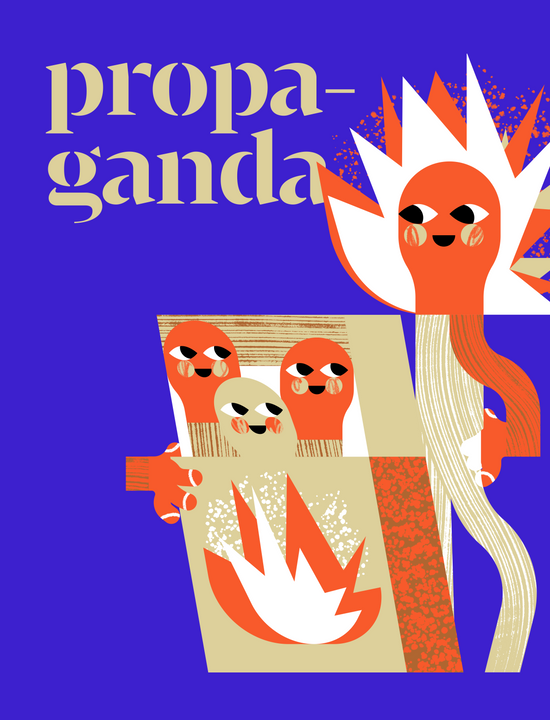3 situations when propaganda becomes dangerous
Propaganda, in short, is a type of information aimed at persuading. In some cases the information is relatively innocent, in others it can carry a number of risks. Discover 3 situations when propaganda can become dangerous.
“When propagandists choose to spread lies or half-truths, they pollute the information ecosystem.”
If you repeat a lie often enough, people will eventually believe it. At least, that was the opinion of Joseph Goebbels, the nazi-German minister of propaganda who was tasked with converting the German population to nazi policy. He meticulously controlled what appeared in the media and did not shy away from lies and disinformation.
When lies are spread by people or organisations with authority, like the media or politicians, the information ecosystem becomes polluted. It may become harder to discern right from wrong information, which increases our risk of believing fabrications as true.
It fosters intolerance
Propaganda that stimulates even the mildest form of intolerance can eventually have major consequences. In the first place it can lead to polarisation or us-versus-them thinking, which pits subgroups of society against each other.
In extreme cases, propaganda that fosters intolerance can lead to mass murder or genocide. Once again, we must refer to nazi Germany and the Holocaust. What started as antisemitic remarks ended in the mass execution of millions of Jews.
There isn’t enough of it
“No matter how strange it may sound, it’s better for there to be lots of propaganda than little propaganda.”
You might think: the less propaganda the better, but the opposite is true. Propaganda harbours more risk when there is less of it, or when propaganda is spread by a small number of voices.
In that case the power of the propagandists grows, because ideas that offer an alternative perspective to the information they spread does not get shared. Imagine for example the elections in our country: if only one political party were to campaign, our democracy would be at risk.
